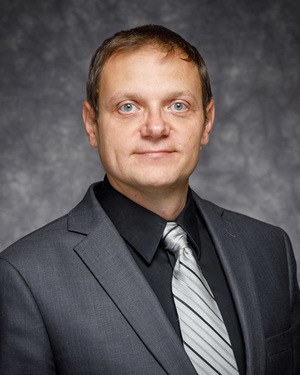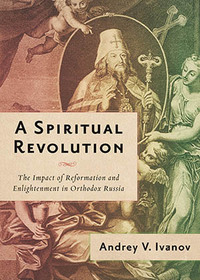
- University of Wisconsin–Platteville
- Assistant Professor of History
- Residential Fellow (2018-2019)
- "A Spiritual Revolution: The Impact of Reformation and Enlightenment in Orthodox Russia, 1700-1825"
Andrey V. Ivanov is Assistant Professor of History at the University of Wisconsin-Platteville. Prior to coming to Wisconsin in 2012, Dr. Ivanov spent two years at Boston College as a Visiting Assistant Professor in the history department. He specializes in the religious, cultural, and social history of the Russian Empire.
His current book project analyzes the influence of Reformation and Enlightenment ideas on the Russian Orthodox Church during the era of great reforms of the long eighteenth century (1700-1825). Drawing on previously overlooked sources in Halle, Wolfenbüttel, Moscow, St. Petersburg, Rome, and elsewhere, his study will place Russia, its empire, and the Orthodox Church into the wider intellectual continuum of the European Reformations, early modern confessionalization, and the early religious and secular Enlightenments that were so fundamental to the rise of modernity on the European continent and beyond.
Dr. Ivanov has published his research in the Sixteenth Century Journal, Journal of Early Modern History, and Vivliofika, as well as in other publications. He is a recipient of several doctoral and postdoctoral awards, including grants and fellowships from the Institute for Research in the Humanities at UW-Madison, the Herzog August Bibliothek Wolfenbüttel, the Edward J. Beinecke Rare Book and Manuscript Library at Yale University, the Josephine de Karman Foundation and the Smith Richardson Foundation at Yale, and the National Endowment for the Humanities. He is currently the Vice-President of the Eighteenth-Century Russian Studies Association.
Publications
-
A Spiritual Revolution: The Impact of Reformation and Enlightenment in Orthodox Russia
University of Wisconsin Press, 2020

The ideas of the Protestant Reformation, followed by the European Enlightenment, had a profound and long-lasting impact on Russia’s church and society in the eighteenth century. Though the Orthodox Church was often assumed to have been hostile toward outside influence, Andrey V. Ivanov’s study argues that the institution in fact embraced many Western ideas, thereby undergoing what some observers called a religious revolution.
Embedded with lively portrayals of historical actors and vivid descriptions of political details, A Spiritual Revolution is the first large-scale effort to fully identify exactly how Western thought influenced the Russian Church. These new ideas played a foundational role in the emergence of the country as a modernizing empire and the rise of the Church hierarchy as a forward-looking agency of institutional and societal change. Ivanov addresses this important debate in the scholarship on European history, firmly placing Orthodoxy within the much wider European and global continuum of religious change.
-
David and Goliaths: Image of the Enemy in Early Imperial Russian Military Sermons
Canadian-American Slavic Studies, 2022
This article explores the content of wartime sermons in eighteenth-century Russia, delivered by the Orthodox bishops during the pivotal military conflicts of early imperial period. Apart from communicating war aims and current events to the laity, these sermons also presented an image of the enemy to the masses. This imagery manifested bishops’ support for the Petrine and Catherinian cultural opening to the West, on the one hand, while promoting a myth of an existential antagonism against the Ottoman South, on the other. Unlike their seventeenth-century predecessors, eighteenth-century sermons avoided the stereotypes of heterodoxy or heresy when describing Russia’s Western enemies, preferring instead the language of just or unjust wars, protection of European neighbors or the metaphor of David facing titanic Goliaths. The non-sectarian imagery, however, did not extend to Islam. Sermons of the Russo-Ottoman wars presented the conflict as a purely religious and Russia’s involvement as a holy war.
-
Escape from Rome: Teofan Prokopovych and Ukrainian Orthodox Ties to the Eternal City, 1650-1721
Harvard Ukrainian Studies, 2020
For most people, a sojourn in Rome does not result in the life-changing event of becoming a religious reformer. The story of Teofan Prokopovych, a Kyivan student in the Eternal City in the late 1690s, stands out as a lesser-known exception to that overall trend, the most famous case being the visit by a young monk Martin Luther in 1511. Although hundreds of Ukrainian Orthodox believers sought Catholic education abroad at the time, Prokopovych’s “scandal” in Rome, was a paradigm-shifting experience that served as a catalyst for subsequent church reform in Ukraine and Russia. This reform ended the dissimulative practice of seeking education in Catholic schools and turned more Ukrainians towards the universities and theological curriculum of Protestant Europe. Having run away from Rome, Ukrainian Orthodoxy turned to Pietist Halle, under the watchful guidance of Prokopovych and other reforming hierarchs of the Holy Synod.